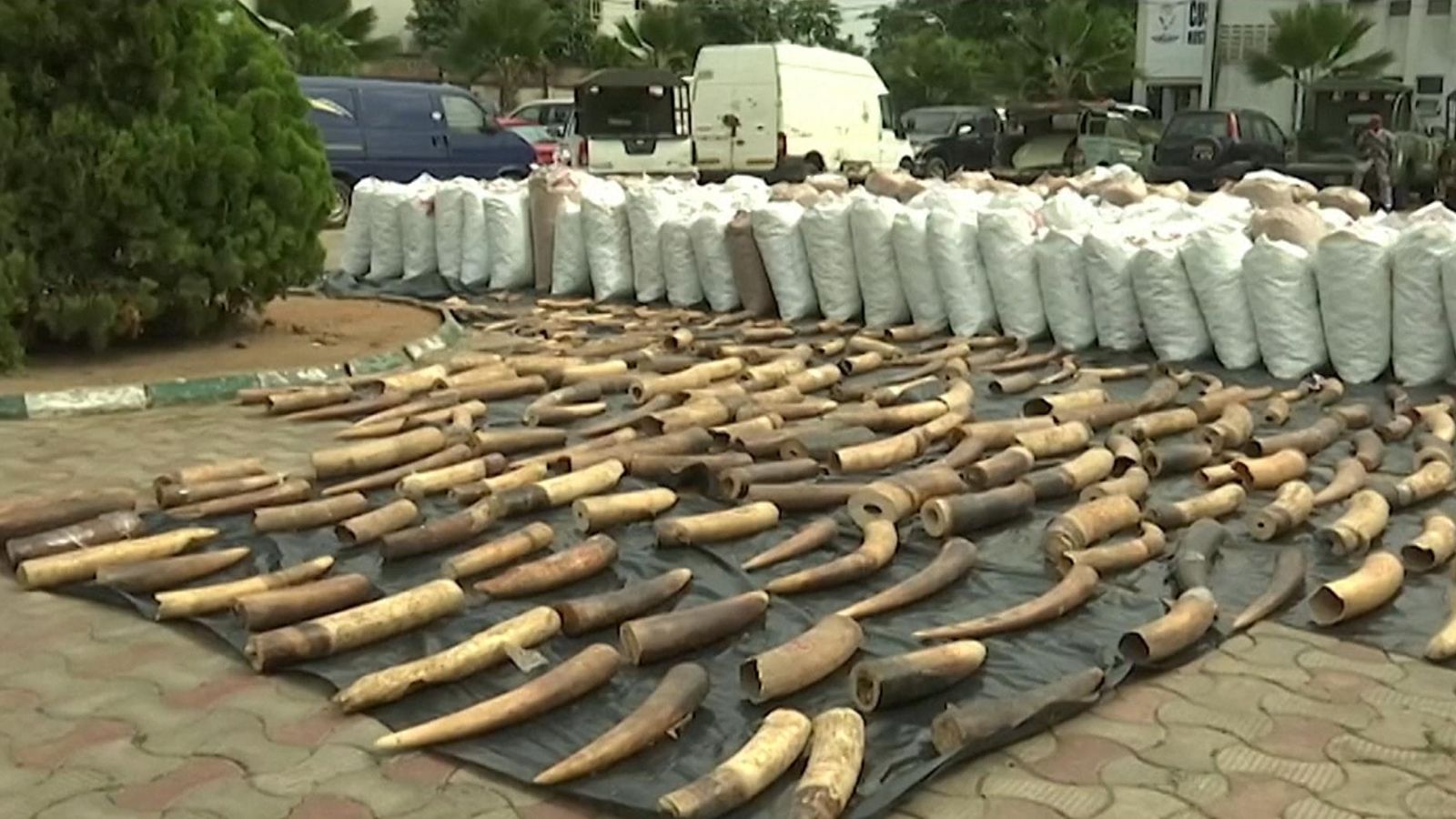More than 17 tonnes of pangolin parts and elephant tusks – believed to be worth at least £38m – have been seized by officials in Nigeria.
Three foreign nationals were arrested and a fourth is being pursued, described as the kingpin of the operation by authorities.
The haul included 196 bags containing 17,134kg of pangolin scales, 870kg of elephant tusks and 4.6kg of pangolin claws.
Officials said the seizure was made at Lekki, near Nigeria‘s main port in Lagos, and was the product of “extensive collaboration” with British, US and German officials, as well as international organisations.
The operation was part of government attempts to combat illegal wildlife trading, which is common in the country.
Colonel Hameed Ibrahim Ali, comptroller-general of customs, said the suspects “will soon have their date in court” as officials will “leave no stone unturned to bring them to justice”.
He added: “Deforestation and deflation of wildlife especially the endangered species have been globally concerning, with nations collaboratively sharing intelligence and expertise that will stamp out this indiscriminate killing of endangered species.”
Pangolins are critically endangered and are one of the world’s most trafficked animals due to demand for their scales in traditional Chinese medicine.
Nigeria is now the main country used by gangs to send African pangolins to Asia, according to law enforcement officials and wildlife experts.
They say porous borders, lax law enforcement, corruption and one of the continent’s biggest ports have helped criminal networks in Nigeria control most of the illegal African trade.
There has been a tenfold increase in seizures of pangolin scales – mainly procured in Africa – between 2014 and 2018, according to the United Nations Office on Drugs and Crime (UNDOC).
An estimated 370,000 of the animals would have been killed to obtain the 185 tonnes of scales that have been seized during this time period.
According to the World Wildlife Fund, poaching for the illegal ivory trade poses the “greatest threat” to the survival of African elephants, with at least 20,000 killed each year for their tusks.
African elephant populations have fallen from an estimated 12 million a century ago to about 400,000.






















